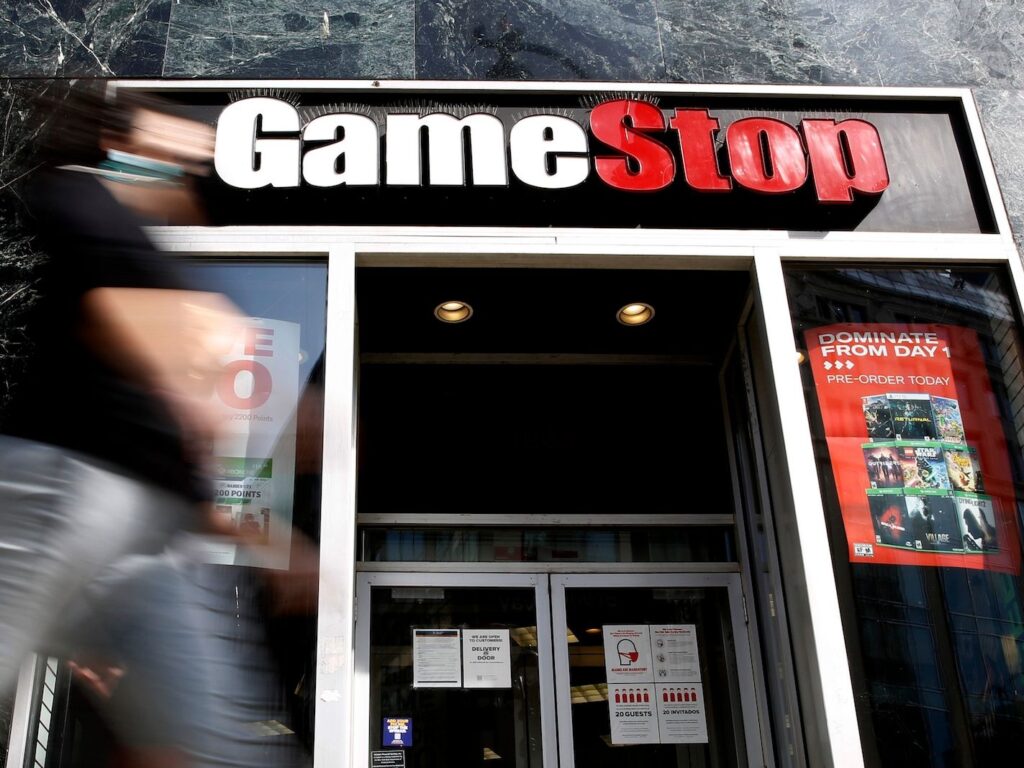GameStop, the once-beloved video game retailer and current meme stock sensation, has experienced a dramatic 25% decline in its share price, erasing gains made earlier this week. This downturn follows the company’s announcement that it would add Bitcoin (BTC) to its treasury as a reserve asset.
The Decline in Stock Value
On Thursday, GameStop’s shares fell to just above $21, marking the lowest price point since October and representing a staggering 28% drop from its peak of nearly $30 the previous day. The sudden decline has left many investors questioning the viability of GameStop’s latest financial strategy.
The Proposal Behind the Selloff
The decline comes on the heels of GameStop’s late Wednesday announcement regarding a $1.3 billion offering of 0% convertible notes aimed at funding its Bitcoin acquisition plan. Initially, this news sparked excitement among cryptocurrency enthusiasts; however, the enthusiasm quickly dwindled as investors began to scrutinize the financing details.
Investor Sentiment Shifts
Louis Liu, Chief Investment Officer of Mimesis Capital, highlighted the shift in investor sentiment, stating, “Many existing shareholders dislike the move, so a switch is happening with large volume.” This sharp sell-off may also relate to the convertible bond pricing period. Prospective bond buyers might be selling or shorting the stock, as seen with MicroStrategy (MSTR) and Semler Scientific (SMLR) during their convertible note offerings.
Concerns Over Future Viability
Wedbush analyst Michael Pachter expressed skepticism about the sustainability of GameStop’s share price. He noted, “We suspect that GameStop’s share price will drift lower prior to the issuance of the convert, particularly given that a convert investor will receive a zero coupon and will be required to have faith that the GameStop meme phenomenon will persist for another five years.” Pachter believes that GameStop’s strategy mirrors that of MicroStrategy, yet contrasts their valuations, suggesting that GME’s current stock price exceeds rational expectations given its cash holdings.
The Trend of Corporate Bitcoin Adoption
GameStop is not alone in its pursuit of Bitcoin as a reserve asset; it follows a trend initiated by companies like MicroStrategy, led by Bitcoin advocate Michael Saylor. The success of MicroStrategy’s transition has encouraged other firms to consider similar moves, especially as the U.S. government has signaled a commitment to fostering digital asset development.
Skepticism Among Industry Experts
Despite the growing trend, not all financial experts are convinced of its merits. Peter Schiff, a notable Bitcoin critic, cautioned against investing in companies that buy Bitcoin. He remarked, “Gambling on companies buying Bitcoin is not a good investment strategy,” pointing out that GameStop has lost its Bitcoin-inspired gains, with shares now down 2% over two days. Schiff argues that the reality is dawning on investors who recognize that using cash to purchase Bitcoin may not constitute a viable long-term business model.
Conclusion
GameStop’s recent plunge serves as a cautionary tale of the volatility inherent in both the stock market and the cryptocurrency space. As companies navigate the complex landscape of digital assets, investors must remain vigilant and critical of the evolving strategies that firms like GameStop employ. The future will reveal whether the gamble on Bitcoin will pay off or lead to further declines in share value.



